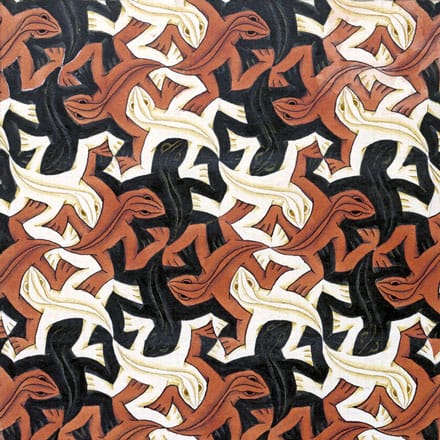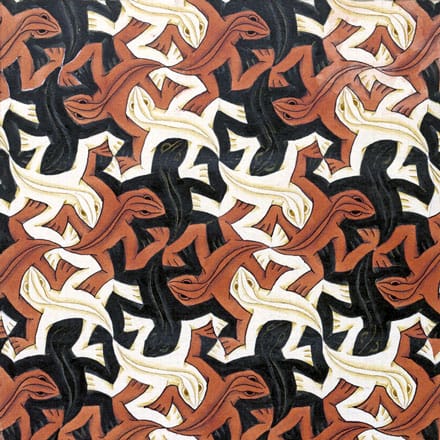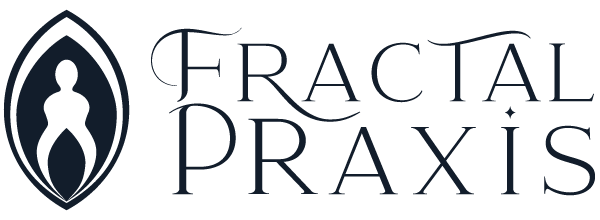Making Good

▶️ Listen to this episode on Spotify!
How can I be good, and how can I do good in the world?
What does it really mean to be or do good with my life?
I know I am not the only person reading this who has asked themselves this.
In this talk, I want to situate the work of Fractal Praxis in relationship with this inquiry—and show how life shines a way to doing good or being good through reintegrating with the reality of ourselves and the world.
This is not a unique inquiry. To want to contribute to goodness, is a near universal human phenomenon that we all share. And perhaps that’s because: it’s reflective of an intuitive reality—a truth so subtle and universal so to have become pre-conscious in us.
Preconsciously, subconsciously, just about all human beings know that this life is a gift. We want to do good because life IS good, and we are life. We know we’re a part of keeping the gift circulating. 🎁
My Journey of Refining Goodness-Making
This question, How to be good? Has been a governing pursuit across my entire life. And has been interpreted in a wide variety of ways, depending on my internal meaning-making structure, and capacity to go deep with that inquiry, across time.
In my childhood, it was about getting good grades to get approval. It was about excelling in school and extracurriculars, and appearing moral and dutiful, to get positive attention. (Or at least to avoid warranting negative attention.) I was very sensitive to moral and ethical questions, socially, environmentally.
Looking back I can see that this was principally motivated by a deep shame and guilt about existing. I drew upon a seemingly endless well of self-loathing and anxiety—that many modern environmental activists listening to this will likely recognize in themselves. It stemmed from that belief system that my existence was inherently bad—so I had a lot of ground to cover to make up for that, and be good. To try to make up for all I was receiving, the assumption was I was indebted.
In my teen years, as I began gaining agency (which is a hugely liberating factor that I talk about at length elsewhere), my anxiety and regret morphed into an identity of energetic activism. I could do something. And this was a source of motivation. I was the president of my high school’s Amnesty International club, writing letters soliciting the release of political prisoners worldwide, and hosting fun fundraisers with my community. I threw myself into volunteerism with nonprofits, and my first summer job was interning at an amazing social justice theater company called Hartbeat Ensemble which used Theater of the Oppressed techniques to craft plays made from the stories of local community members.
Until I eventually grew disillusioned by the hierarchical structures inherent in the “nonprofit industrial complex,” and in my early 20s, shifted to engaging in a different model of change-making: direct action.* There was an abundance of anarchist collectives operating in Pittsburgh, PA, where I was attending college, and fulfilling a variety of community needs and functions. Direct action simply means community members directly participating and coordinating themselves—in an equitable and consensual framework—to make changes that benefit themselves and their neighbors, and show solidarity to oppressed people worldwide. *I'm aware that direct action is widely defined online as oppositional, conflictual action undertaken by individuals and affinity groups against unwanted authorities (encompassing, colloquially, destructivist tactics—or the ability to destroy), but in the anarchist circles I biked and squatted in ;) constructivist tactics—or, the ability to enact the worlds we wanted to see, such as through forming our own organizations, consensual systems, and governance—was seen as a form of direct action.
For over a decade of a self-made career, I embraced cooperativism and the formation of business co-ops as a strategy for making good in this direct action or self-help model. (Note: co-ops use the term "self-help" to mean collective action that benefits ourselves—not in reference to the psychological self-help genre.) I’m proud to say I helped form, grow, and strengthen nearly two dozen co-ops, nonprofits, small businesses, and social enterprises in that period—and educated many more people.
In the last decade or so, my efforts to “make good” have once more shifted into teaching and facilitating folks about systems-thinking, permaculture practice, and participation in their local ecosystems and communities—still within a logic of direct action, but oriented towards a pattern-based praxis. By seeing the patterning of living systems reflected in everything enables us to navigate all kinds of complexity. (I’ve applied this type of deep thinking and pattern analysis to diagnosing and remedying issues faced by organizational and leader clients of mine, too.)
In the last few years, I've been cultivating my presentation in the world as a minister, meaning: a person who simply channels wisdom and beauty, and shows up to what is called for by my relations. This is an elegant model, a relational model, and an ancient archetype for just giving, giving, giving, and being of service. So it suits me.
All of this is a legacy of just wanting to make the world a better place through my existence.
Though the meanings change and iterate, the one quest contains it all. And whereas I started from non-belonging and moved to a profound sense of belonging, there is no end to asking—and answering—this root question. 🪸
Becoming More of What We Are
Although I believe that to try to be/do good is a widely felt impetus for all natural people—few us us can pursue it openly, and most of us suffer from it being suppressed and distorted. Because: this is NOT a widely held or practiced value according to the norms and worldview of the capitalist, colonialist, supremacist culture that surrounds us. More often than not, under the rules of that game: those who do good are exploited for all their worth—and those who do the exploiting hoard the resources, cutting off the cycle of reciprocity. Generosity is punished, not rewarded, in this game.
So perhaps to commit one's life, as I have, to pursuing being or doing good is countercultural. But it is NOT counter to who and what we are, deep down.
The thing is, if we look to life, we see that it not only knows goodness, it IS goodness.
Life has this unique and reflexive knack for fostering its own conditions for thriving. This looks like ecosystems seeking to achieve a climax state—meaning, a peak state, a desirable state; it’s what life moves toward. In which the greatest amount of biodiversity is achieved. More beings means more niches, not fewer. More opportunities for innovation.
Life abhors sameness. Life literally counteracts entropy, and uniformity or monoculture, everywhere it can. Life loves living, so, by some magical and reflexive patterning—it makes its OWN conditions for having even more chances at living. This is a principle known as autopoeisis, literally translating to self-making, in living systems.
So, in this sense, life has one core purpose—but it manifests across immense diversity. It’s brilliant. It’s elegant. It’s ecstatic. It’s generative. And it is what we are.
WE ARE LIFE. So we are bound to be good and do good—if we’re permitted to follow our true natures.
But first we must—and this is the hard and long part... we must unearth our true natures from layers of traumatic conditioning and accumulated projected identities. We must shed all the ill-fitting, extraneous ideas and assumptions—and those that are rather energy intensive to manage, due to all the cognitive dissonance they generate.
I can’t tell you how to do that. And even if I could, it wouldn’t matter unless YOU found the courage and the commitment to DO it. But I’ll show and teach you my way, as best I can. I’ll share the patterns I’ve used to completely reorganize myself—and my sense-making—toward my ultimate liberation. Finally, I have self-made the framework for doing so: Fractal Praxis.
How To Be/Do Good
So. How do we be here, well? How do we do good? How do we be allright? How do we be regenerative?
If we can make things good, why wouldn’t we try—and try harder? If things can be better through our very existing, why wouldn’t we contribute to that?
I feel like, on this quest, I’ve stared into the belly of the beast more than once. Meaning: I’ve basically answered this question, to my satisfaction, over and over again, each time in more and more depth. My answer becomes more and more fractal and wholistic in articulation over time. And I’m still not done trying to answer it. But here’s what I’d say about it today.
There’s one (generalized) way to be and do good: engage with your world.
If living systems are self-making, and life is good, then the process of living can make life even better. And: the process of living IS a process of meaning-making.
This is intrinsic to life’s design in the universe. No external, superimposed effort is required.
And we need to remember that everything we do and do not do, is generating the conditions in which every other being exists. We ARE our own context. So, internalizing the idea of interbeing is valuable. We must override our conditioning that says: here I am, sovereign solipsistic individual, hero of a story, and the rest of the world is the stage—the backdrop. We must see not from figure-ground, but from figure-figure eyes: we ARE the conditions we create. We take the shape enabled by all other beings, historically and simultaneously.

Yet, why does this reality seem so distant? Why does it seem that most modern-day humans are actively detracting, or contributing negatively to our environments?
Because we are out of alignment, and out of conformity, with the truth of ourselves. We lead lifestyles divorced from consequences and divorced from our relations. We don’t have the feedback, the contact with life, necessary to adjust ourselves. But for as much as we avoid that feedback—we generate karma… and we experience cognitive dissonance.
And overcoming cognitive dissonance is a key aspect to liberating ourselves. Attaining right understanding, and attaining right relationship, are closely interrelated.
It’s not humans that are inherently bad. Rather, I believe human individuals and society are incredible expressions of complexity—and in that sense, are a reflection of what life wants. But the way that most of us are living… the way, the logic, the lifestyle, the pattern, which is reflective of the western world’s mythos… this is what’s inherently off. And the feedback we’re getting—inner (cognitive dissonance) and outer (oppression, ecological collapse, etc.)—is just trying to let us know: we are off course.
I believe there is an elegant way to re-enter the dialogue of life on this planet. To conform ourselves to the truth, rather than to some superficial superimposed social standard. But it will take shedding everything we are not, really. And shedding a culture that, if we bind ourselves to it, will bind us to a slow painful death.
I know from firsthand experience that this kind of breakthrough in consciousness can happen radically, spontaneously—or even catastrophically—to our ordinary sense of self. I invoke this for us now. We need this now.
But not to be broken.
To be made whole.
To be broken open.
...Into a way of living, and understanding, and synchronizing with our world, that allows everything to make a lot more sense. And that allows us to have meaningful participation in bettering the world, and leaving a GOOD legacy.
What I’m discussing might seem esoteric, but I’m pointing to the subtle architecture of just what is. If you seek, you will eventually find it. It’s like the age-old debate about what the Buddha’s enlightenment mean. Did the Buddha transcend ordinary existence and access some special, holy realm that the rest of us are mostly locked out of? Or… did he just find a way to be radically whole—within his humanness? Did his trained and expanded mind meet the challenge of actually comprehending the world—and he ended up: just as is, but free of cognitive dissonance—free to be and do well… even, some might say, universally?
True Self, Good Form
Good form makes good outcomes.
Good form includes good thinking—includes attaining understandings that reduce friction and harm (karma) from cycling in our semi-closed living systems.
And the more sense we make of things, the more good we generate. In general.
So, now that I’ve propped up the appropriate meta-inquiry for what this work is all about, in subsequent episodes I am going to be sharing the thinking that led to, and are the fruits of, crucial insights. So avid was I to learn the way out of the mire and suffering of my youth, I was fortunate, in that the few sound ideas that would become pillars of my worldview, I began internalizing all before the age of 23—which indeed, probably precipitated the major spontaneous spiritual experiences that would characterize and reorganize my life subsequently in my 20s.
Here’s a tease of what’s to come:
- It starts with adopting a really good filter for what not to believe. ✂️
- And having a foundation in your own body-mind as a living system that is trustworthy in its abilities to make sense, to glean universal truths from, even the most intense or dynamic lived experiences. 🤸
- And then to use this foundation to seek evermore extremely elegant explanations for things. 👁️
- Which may require stretching mind and language to properly internalize patterns in the world. 🤯
…Looking forward to getting into it in the coming weeks!
Thank you so much for reading. To support this work, you can visit fractalpraxis.com to get on the mailing list, send this to a friend, or make a donation at fractalpraxis.com/donate.
Blessed be,
C.
